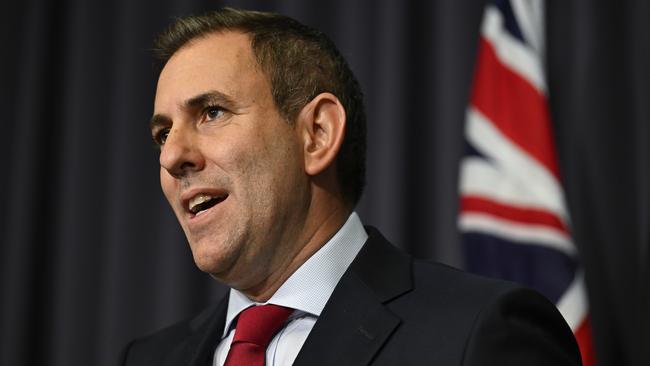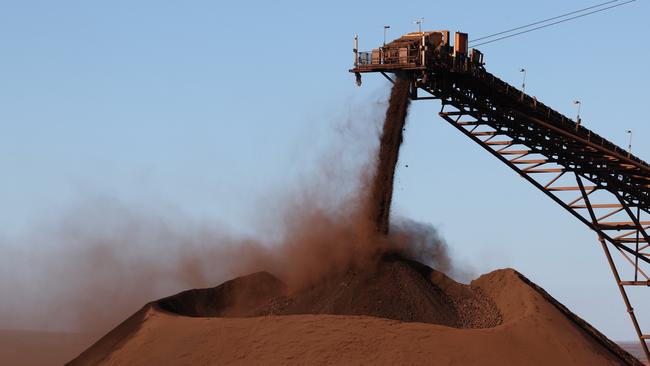For reform’s sake, business must embrace new approach with Albanese’s reinvigorated Labour


Don’t expect a re-run of the big dry economic hits of the Hawke-Labor or even the Howard years. The times — and electorate — have changed, and the reform agenda will be driven in a way which reflects the social approach of new Labor.

And business leaders will have to increasingly argue their case through the lens of housing, education, skill, healthcare, energy and national prosperity. This will be the opportunity for business to meet on Labor’s terms — a positive difference — and in a less combative way.
Business also has little choice. If there was any message coming from Peter Dutton’s disastrous campaign, it was business can no longer rely on the Coalition for support on traditional areas like industrial relations, skills shortages, forging free trade links with China or productivity gains.
Business will have to swallow the bitter pill of the first term IR changes — Albanese nominated wage rises and areas like the right to disconnect in his victory speech and has no intention of turning back the clock.
The Business Council of Australia has already nominated policy overlap with Albanese’s government. This extends to improving living standards, increasing skills, boosting housing supply, delivering sustainable health and care services, and achieving an affordable and reliable pathway to net zero.
New stability
Leading into the vote, Labor internal “base case” predictions ranged from 72 to 75 seats, and the most bullish scenario had them secure 78 seats.
On Sunday, Albanese’s Labor were on track to win 86 seats, up from 77 in the first term.
The overwhelming positive for business from these figures is a decisive win removes any threat of endless uncertainty with a minority government or a Greens-Labor compromise driving the national agenda. It also completely eliminates Labor’s own internal power struggle, with a minority government almost certain to ignite tensions over Albanese own leadership and the likelihood of a power struggle part-way during the term.
For business, the government is a known quantity with the stability of Albanese, Chalmers and the senior economic team in the face of deeply volatile global environment.
Economic certainty remains one of the biggest positive forces that allows business to plan and invest.

Since becoming Prime Minister, Albanese has made a regular appearance at the Business Council of Australia annual dinner, including last September when he declared his government was proudly “pro-business as well as pro-worker” with secure jobs and fair wages reliant on a thriving economy.
There Albanese highlighted to more than 200 CEOs an agenda of investment in skills and education, housing, infrastructure, health care and energy. He emphasises these were productivity measures that also benefit business.
He also took that moment to remind the room his government stood against, “some
pretty extreme anti-business policies” put forward by the cross bench, and opposition in particular.
It didn’t go unnoticed by business early last year Albanese personally opened Coles’ automated warehouse in western Sydney. That was around the time when the public backlash against supermarkets on pricing was the greatest.
AAA fight
The biggest economic message to get cut-through during the six-week campaign didn’t come from opposition or any other candidate, rather, it was global ratings agency Standard & Poor’s.
Late in the game, S&P warned the lack of effort in addressing Australia’s forecast runway of deep deficits and the prospect of a cooler global economy could see the loss of the Commonwealth’s highly-cherished AAA credit rating.
S&P also warned about the increasing use of off-budget vehicles to drive spending.
This drew swift reaction from Chalmers, who strongly defended his government’s work in reducing the size of budget deficits and delivery of a surplus. (Although booming commodity prices played a big part).
Still, S&P’s well-timed warning rattled the government enough that it put a much-needed rocket up Albanese’s economic team around the need for discipline heading into the second term.
The weekend vote means Chalmers has been largely vindicated on his economic record so far. A shock ratings downgrade would be devastating for Chalmers and Labor’s credibility as they position themselves as the nation’s new (and sound) economic managers.
On Sunday, even after still absorbing the magnitude of the win, Chalmers was promising to do more on productivity, and this will be a primary economic focus of the new government.
The first term was about the fight on inflation, Chalmers said. The second term “will be primarily productivity without forgetting inflation”.

During the first term Chalmers spent much of his political capital driving an overhaul of the Reserve Bank. While a review of the bank’s Covid efforts was right, the additional overhaul of the board and structure has arguably delivered little additional economic upside.
Going into the election, Chalmers had competition reform already underway and has begun the process of encouraging states and territories to undertake their own economy changes productivity reforms.
With the benefit of Labor’s whopping majority and a future clear of leadership speculation, Chalmers has more time to pursue meaningful reform. (More taxes, like unrealised asset gains is not the right way forward).
The win was significant but a further economic boost will come for Albanese and Chalmers later this month. The Reserve Bank has all signed off on an interest-rate cut given inflation has now started to get back under control.
Combined with the February rate cut, this gives middle Australia even more hope that while things are tough now, tomorrow will be better.
With the opposition in the wilderness after a decisive victory, this is a rare stable moment for modern Australian politics which could finally see business and government work on smart, productive reforms.
johnstone@theaustralian.com.au



Business will now need to build a shared agenda with a highly confident Albanese government. And with Albanese’s Labor firmly back in charge, the silver lining is a decisive win gives them room to take risks, and that includes Treasurer Jim Chalmers putting his name to more ambitious economic reforms.